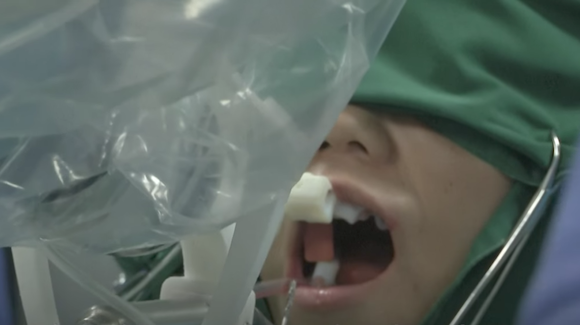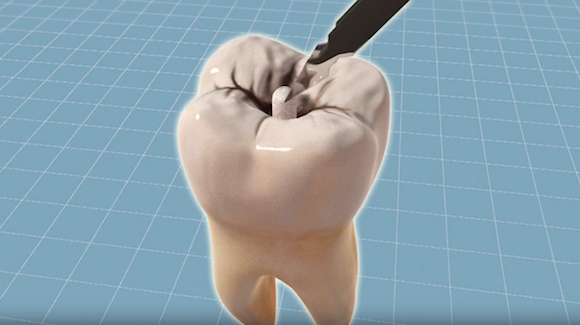Paul Sharpe, PhD, and a team of researchers at his King’s College London laboratory, have found a novel use for a molecule currently undergoing clinical trials for the treatment of Alzheimer’s and progressive supranuclear palsy. Tideglusib, the specific glycogen synthase kinase (GSK-3) inhibitor molecule used by the research team, has shown efficacy in stimulating stem cells in tooth pulp to generate large enough quantities of dentine to repair (and even regrow) teeth.
Our teeth naturally produce small amounts of dentine to protect tooth pulp when damage is detected, but never in large enough quantities to prevent cavities from forming. When researchers added low doses of the GSK-3 inhibitor to a collagen sponge, and then inserted the sponge into a damaged tooth, dentine production increased well beyond normal levels.
The implications of being able to stimulate natural tooth repair and regrowth are far-reaching, but perhaps even more exciting are the facts that collagen-sponges are already clinically-approved, and tideglusib has already generated safety data during its clinical trials over the past few years. This means that GSK-3 inhibition could become part of a viable dental treatment relatively quickly.
Click here to read the article published by King’s College London.
Click here to read the report published in Scientific Reports.
Click here to view a video about this research featuring Paul Sharpe, PhD’s commentary.






